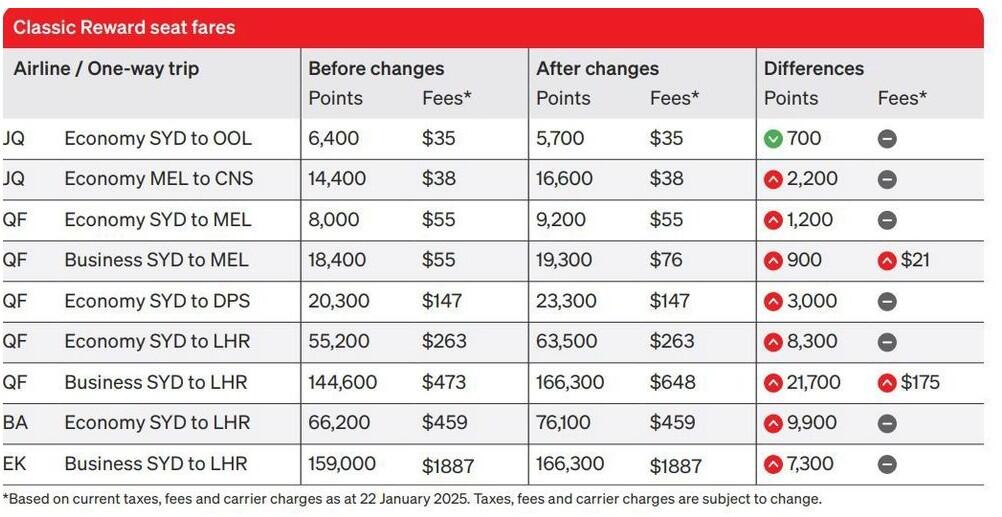In an attempt to regain credibility with customers, Qantas has announced a plethora of changes to its loyalty program which presents a cocktail of unexpected brickbats and bouquets for frequent flyers.
The market responded favourably to the airline’s plans to increase points earned on flights with the share price in the national carrier up over 3% at the end of trading yesterday.
Qantas frequent flyer members will be able to redeem points on seats with Hawaiian Airlines and unlock classic reward seats with partner airlines such as Finnair and Air France.
Overall, frequent flyers will have access to more premium cabin reward seats and the ability to earn more points when flying, however, not all changes leave members better off.

For example, as of July, members flying domestically will earn up to 25% more points on Qantas flights but come August, the number of points needed for classic upgrades and classic rewards seats will increase.
According to comparison site Finder, the points required for a classic reward return trip from Sydney to London will jump from 110,400 to 127,000 – a 15% increase.
From August this year, Qantas Frequent Flyer members will need to use thousands more points to redeem seats and upgrades on domestic and international flights.
Sydney to London economy reward fares will be bumped up to 63,500 points plus $263, up from 55,200 points.
Meanwhile, a Sydney to Melbourne business class reward seat will cost 19,300 points plus $76, up from 18,400 points and $55.
“A lot has changed in the last six years,” Qantas loyalty chief executive officer Andrew Glance said.
“These adjustments will ensure we can continue to invest in enhancing the program for the long term and continue to grow the levels of classic and classic plus reward seat availability for members year on year.”
At the time of writing, the Qantas Airways Ltd (ASX: QAN) stock price was $9.38, with a market cap of approximately $14.19 billion.



